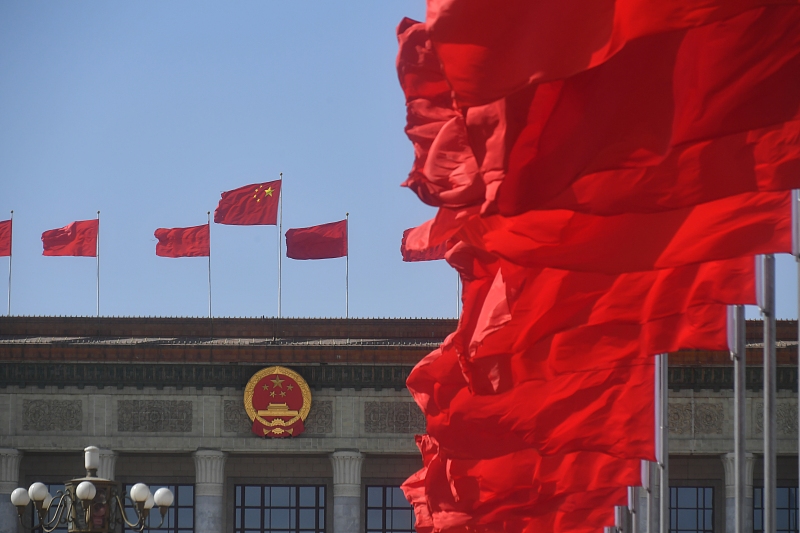By Essam A. Sharaf

The Great Hall of People in Beijing. [Photo/CFP]
A careful review of the mechanisms of Chinese modernization shows a reliance on a set of four core human values to achieve the prosperity of Chinese society — development, peace, harmony and cooperation.
Projecting these values onto the global level, it can be seen that each of them can achieve a basic global need, as there is no prosperity without development, no development without peace, no peace without people-to-people bonds, and no harmony without a framework for connectivity and partnership.
From this standpoint, it can also be seen that the four initiatives that China has introduced to the world — the Global Development Initiative, the Global Security Initiative, the Global Civilization Initiative and the Belt and Road Initiative — promote these values.
Similar to the fact that the four values represent the main components of Chinese modernization, the four Chinese-proposed initiatives are the pillars of building a global community with a shared future.
Taken chronologically, the first initiative to be proposed by China, the Belt and Road Initiative, is a platform for forging partnerships and international connectivity, hard and soft. The hard connectivity is in the form of infrastructure projects, and the soft connectivity is attained through people-to-people bonds, cultural exchanges, dialogues between civilizations and mutual learning. The partnerships are the partnering of thoughts, actions and benefits.
The second initiative is the Global Development Initiative. The international community warmly received it to the extent that around 100 countries and many international organizations have formed the Group of Friends of Global Development Initiative. United Nations Secretary-General Antonio Guterres has said that the GDI is significant and has a positive effect in promoting global equality, balance and sustainable development, and that the UN fully supports the GDI and is willing to enhance cooperation with China in this regard.
The value of the GDI stems from the fact that it presents a road map for development through a distinct set of core concepts and priorities. The core concepts include a commitment to development as a priority, a people-centered approach, benefits for all, innovation-driven development, harmony between humans and nature, and results-oriented actions.
The third initiative, the Global Security Initiative, confirms abiding by the purposes and principles of the UN Charter and upholds resolving differences and disputes through dialogue and consultation. It was introduced as a global public good and warmly received by the international community. Although this initiative is a response to current global conditions, it expresses China’s approach to international relations as enshrined in the five principles of peaceful coexistence: mutual respect for sovereignty and territorial integrity, mutual nonaggression, noninterference in each other’s internal affairs, equality and mutual benefit, and peaceful coexistence.
The fourth initiative proposed by China is the Global Civilization Initiative, which aims to build trust between peoples. To quote UN Secretary-General Guterres’ address to the UN General Assembly in 2018, “Our world is suffering from a bad case of trust deficit disorder.”
The world consists of around 200 countries, and there are numerous religions and thought paths. Hence, the importance of this initiative lies in achieving harmony among people through cultural and civilizational understanding and respect.
As political scientists put it, political systems are grounded in cultures. International relations, therefore, are intercultural relations. Therefore, enhancing cultural connectivity, understanding and respect can improve international relations. China has the ability to lead the world in this direction because the country has 56 ethnic groups living in harmony and peace.
China’s success in improving the lives of its huge population testifies that it has the ability and capability to lead the world toward the noble goal of global development.
I believe that the four values of Chinese modernization form the essence of the four global initiatives proposed by China and that, when carefully considered and adopted by those desiring peace and development, constitute a road map for the transition from a world of domination to a world with a shared future for humankind.
By providing a platform for international cooperation, as well as mechanisms for building trust, the harmony of cultures, respect for civilizations and enhancement of world peace and development, China is leading the way to a world order characterized by dialogue-based international relations, rules-based global governance and true multilateralism.
The author is former prime minister of Egypt.
China Daily Global
 Africa -China Review Africa -China Cooperation and Transformation
Africa -China Review Africa -China Cooperation and Transformation
